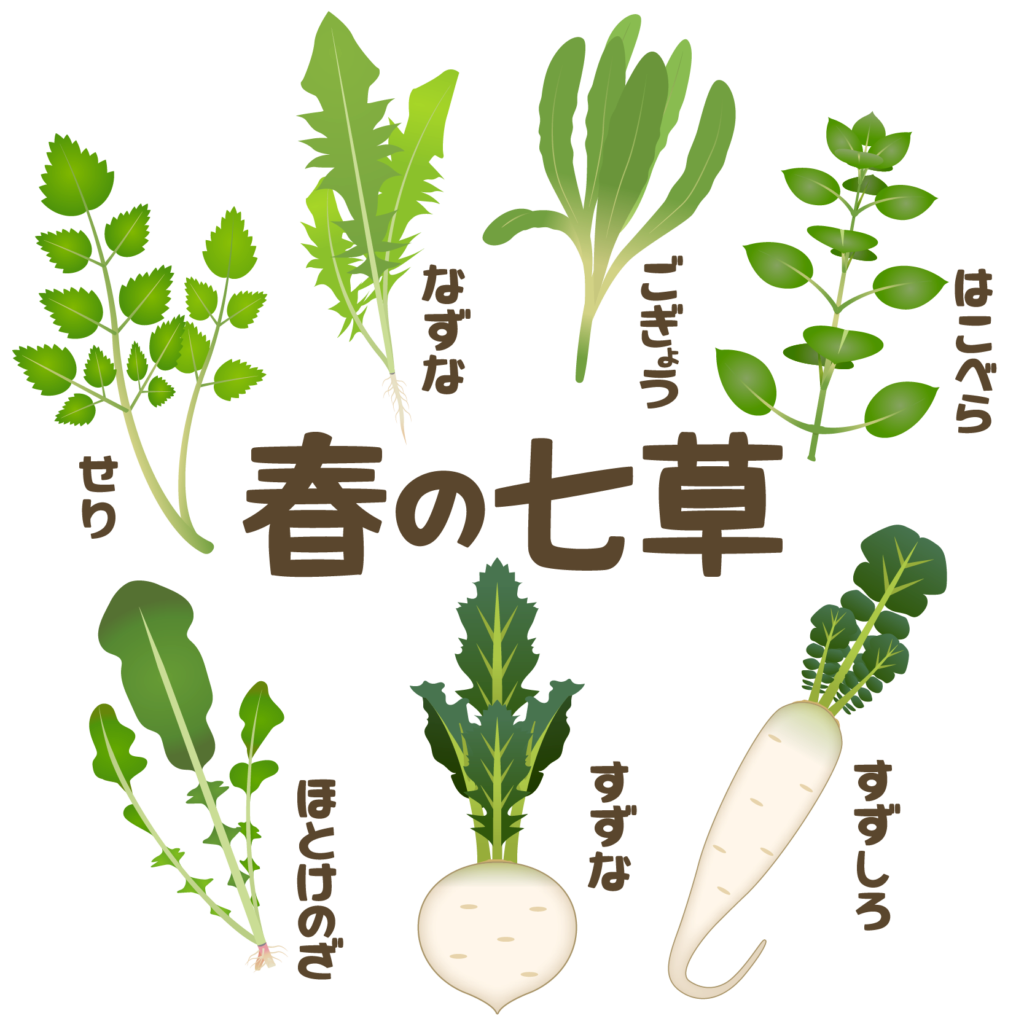
1500 years ago, the Manyo poet Akahito Yamabe composed Waka about the seven herbs of spring, saying, “I made a mark to pick Wakana from tomorrow, but it’s still snowing yesterday and today”. It seems that heavy snow has hit all over Japan. There is a difference in the calendar between now and the past, so it may not be the same time, but there is something that is reminiscent of the times. Every January 7th, the custom of eating Nanakusa porridge in the first festival of the year, “Jinjitsu no Sekku”, is to eat the young shoots of Nanakusa and take in the vitality of the plant, so that you can live without any illness. It contains a wish to be able to do it. Jinjitsu means a day when people are cherished, and is one of Go-Sekku(the five seasonal festivals) such as the Joshi (March 3rd), the Tango (May 5th), the Shichiseki(Tanabata, July 7th) and the Choyo(September 9th) which was introduced from China. Nanakusa is a Japanese herb, and it is eaten as a porridge that does not burden the gastrointestinal tract, so it is a good food for the recovery of the gastrointestinal tract when New Year’s fatigue begins.
明日からは 若菜つまむと 標(し)めし野に きのふもけふも 雪は降りつつ(明日から若菜摘みをしようと印をつけたのに、昨日も今日も雪が降り続いています)
今から1500年前、万葉歌人の山部赤人が春の七草を歌った歌です。今、東京を始め全国各地では大雪に見舞われているようです。暦の違いがありますから同じ時期の光景ではないでしょうが時代を越えて彷彿とさせられるものがあります。毎年1月7日、一年の最初の節句である「人日(じんじつ)の節句」に七草粥を食べる風習には、七草の若芽を食べて植物がもつ生命力を取り入れ、無病息災でいられるようにという願いが込められています。人日とは、人を大切に思う日という意味で、上巳(じょうし、3月3日)、端午(たんご、5月5日)七夕(しちせき、 7月7日)、重用(ちょうよう、 9月9日)と共に「五節句」と言われ、中国から伝わった行事です。七草はいわば日本のハーブ、そのハーブを胃腸に負担がかからないおかゆで食べようというのですから、正月疲れが出はじめた胃腸の回復にはちょうどよい食べ物なんですね。
